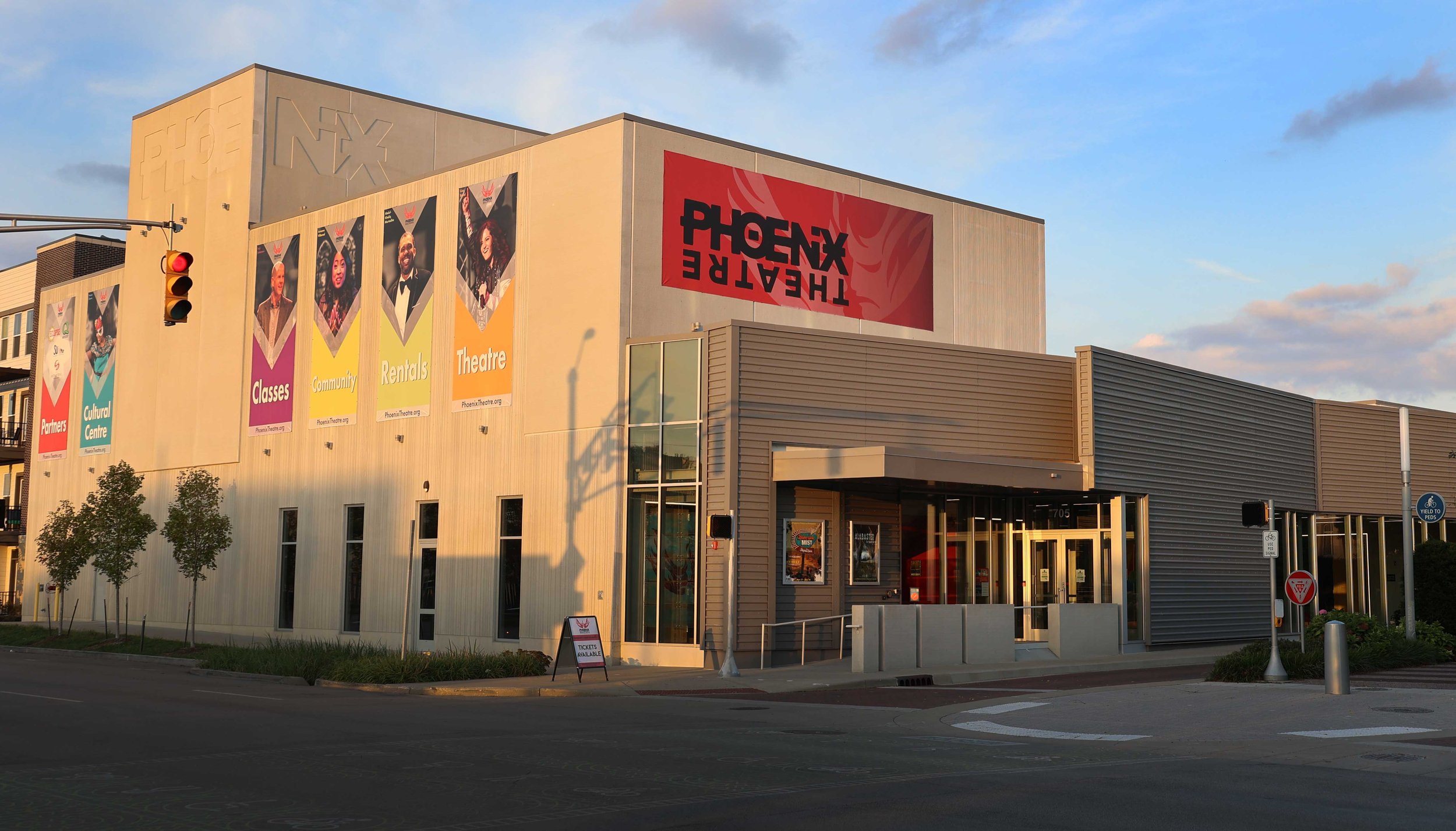
The Phoenix
The Phoenix Theatre Cultural Centre is a nonprofit and home to a performance collective that includes seven professional theatre companies, each their own non-profit entity. Among them is the Phoenix Theatre, a union theatre dedicated to nurturing new plays and emerging playwrights. The Phoenix Theatre Cultural Centre's mission includes growing the community’s reputation as an arts destination and serving as a hub to showcase local artists, host events, and help its neighborhood thrive.
Always different. Always Entertaining.
The Early Years
After the closing of the Broad Ripple Playhouse, the Phoenix was founded by Bryan Fonseca in 1983 in order to perform the three-part science fiction play Warp! in the historic Ambassador Hotel at 9th & Pennsylvania. In the fall of 1988, the Phoenix moved to a church at the corner of St. Clair and Park. The church was a gift from Scott Keller and it was our home for 30 years.

Our Mission
Phoenix Theatre Cultural Centre dedicates itself to commissioning, cultivating, and producing new and contemporary plays and artistic experiences; bolsters dialogue that explores the social, political and cultural issues of our time; and champions inclusion, diversity, equity and accessibility (IDEA) for all.
Vision Statement
The Phoenix Theatre is a vital and thriving contributor to the Indianapolis theatre ecosystem and serves as the leader in nurturing local and regional talent and of telling the stories of the unheard voices.
The Land
We acknowledge and honor the Indigenous communities native to this region, and recognize that the Phoenix Theatre Cultural Centre is built on the unceded territory of the Delaware, Kickapoo, Miami, Shawnee, Peoria, and Potawatomi people.
Equity and Inclusion
We are practicing anti-racism through conscious decision-making that centers equity, advocacy, continual learning, and accountability. We are committed to dismantling systems of oppression in our organization, our field and our culture. We aspire to build a more inclusive society—across race, ethnicity, nationality, age, gender identity, sexual orientation, disability, socioeconomic background, religion and political viewpoints—and recognize the pivotal role of Theatre in that effort.


